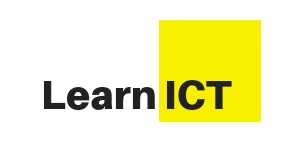Since the internet became widely used in the 1990s, there have been many issues surrounding online security. Cyber attacks on individuals, companies and even governments haven’t been far from the headlines in the past few years. Most recently, how our data is being used online has come under scrutiny.
While the sheer volume of information and advice on online security can sometimes seem overwhelming, it is important to understand exactly what security issues you could face, both at work and at home.
In this article, we’ll take a look at some online security issues that could affect those working in the education sector and the steps that you, as a teacher, can take to ensure that you and those that you’re educating stay safe online.
Is your school’s data vulnerable?
In the modern world, data hacks and data breaches seem to be in the headlines with worrying regularity.
In a survey of 348 head teachers, only 27% were aware of any encryption being in place to protect data.
Online data security should be a priority, especially since the GDPR coming into force earlier this year, means that those not handling data in the right way, could be subject to hefty fines.
It’s important to ensure that your school has the appropriate systems in place.
Scams involving Microsoft Windows
Many education institutions use Microsoft Windows as their ‘go-to’ software.
If you use a Windows account, it’s important to be aware of Windows technical support scams. Potential victims are often contacted by scammers and told that they have a problem with their software. The scammers then attempt to get the victim’s personal details, by telling them that they need to log their problem for it to be dealt with.
Greeting card scams
At some point in our lives, we’re all likely to receive virtual cards wishing us happy birthday or saying thank you.
Greeting card scams are part of a larger category of scams that encourage users to open up attachments on emails, or click on links to websites, which will result in malicious software downloading onto their computer.
It is vital that both teachers and students are educated about these scams, so that they will think twice before clicking on a link or downloading something that they are not sure about.
The importance of education about online security
Raising awareness among students, about the issues that they could face when using the internet, is a vital part of keeping them safe online.
Educating fellow teachers about online security issues is also crucial for a school’s security. Although having the correct systems in place, such as anti-viral software, is a key part of any organisation’s online security measures, it is often said that it is actually human error that causes the majority of business cyber attacks.
So it seems that when it comes to staying safe online, knowledge really is power.





